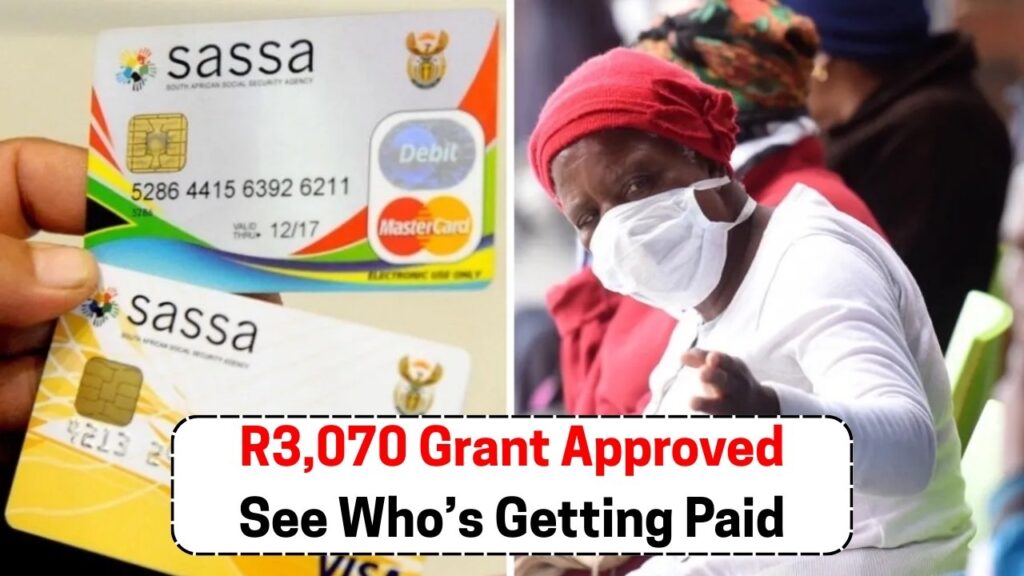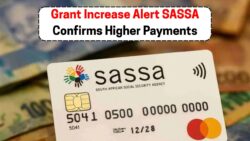Discover the Full Beneficiary List for the R3,070 SASSA Grant in September 2025: In South Africa, the Social Relief of Distress (SRD) grant has become a crucial support system, especially in challenging times. The R3,070 SASSA grant for September 2025 is a significant lifeline for many citizens, providing financial assistance to those who need it most. As the economic climate continues to fluctuate, this grant is designed to alleviate some of the financial burdens faced by individuals and families across the nation. Understanding who qualifies and how to access this grant can make a substantial difference in the lives of recipients. For those relying on this grant, having access to the beneficiary list is essential, as it ensures transparency and accountability in the disbursement process.

Eligibility for the R3,070 SASSA Grant in September 2025
Securing the R3,070 SASSA grant in September 2025 requires potential beneficiaries to meet specific eligibility criteria. The South African Social Security Agency (SASSA) ensures that these criteria are transparent and straightforward, aiming to assist those most in need. To qualify, applicants must be South African citizens or permanent residents. Additionally, they must be over the age of 18 and not receiving any other form of social grant support. Importantly, the income threshold plays a pivotal role. Individuals must demonstrate that their monthly income is below a certain level to ensure the grant reaches those truly in need. This grant particularly targets unemployed individuals and those who have lost their jobs due to economic challenges. By maintaining stringent eligibility checks, SASSA aims to uphold the integrity of the grant system, ensuring that the allocated funds support the intended recipients effectively.
Understanding the Distribution Process of the R3,070 Grant
The distribution process for the R3,070 SASSA grant in September 2025 is designed to be efficient and accessible for all beneficiaries. Once applicants have been deemed eligible, SASSA employs a streamlined process to ensure timely disbursement of funds. The distribution is primarily conducted through electronic means, such as bank transfers or mobile money services, which allows for quick and secure transactions. Beneficiaries are notified via SMS or email regarding the status of their grant, ensuring they remain informed throughout the process. For those without access to electronic banking, SASSA provides alternative methods, such as cash payments at designated points. These measures are in place to accommodate all recipients, regardless of their access to technology. SASSA continually strives to improve the distribution process, taking feedback from beneficiaries to enhance efficiency and reduce any potential bottlenecks.
Impact of the R3,070 SASSA Grant on South African Communities
The R3,070 SASSA grant in September 2025 has a profound impact on South African communities, serving as a vital source of support for many households. This grant helps alleviate poverty by providing much-needed financial assistance, allowing recipients to cover basic needs such as food, clothing, and utilities. Beyond individual benefits, the grant also stimulates local economies, as beneficiaries often spend their funds within their communities. Small businesses and local markets see increased activity, which can lead to job creation and economic growth. Furthermore, the grant contributes to social stability by reducing the financial stress experienced by many families. By supporting those in need, the R3,070 grant fosters a sense of community resilience, enabling individuals to focus on long-term goals such as education and skill development, ultimately contributing to a more prosperous society.
Future Prospects and Adjustments for SASSA Grants
As South Africa continues to navigate economic challenges, the future prospects for SASSA grants, including the R3,070 allocation, are under constant evaluation. Government and social development entities are exploring ways to enhance the grant system to better serve the population. This includes potential adjustments to eligibility criteria, grant amounts, and distribution methods to adapt to changing socio-economic conditions. There is ongoing discussion about implementing more targeted support measures to address specific community needs, such as increased support for rural areas or sectors heavily impacted by unemployment. Additionally, advancements in technology are being considered to improve the efficiency and accessibility of grant disbursements. By continually assessing and refining the grant system, SASSA aims to ensure that these financial aids remain a sustainable and effective tool for alleviating poverty and supporting vulnerable populations in South Africa.




